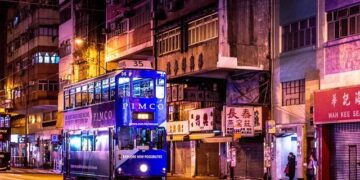In a controversial display of educational policy advocacy, the recent Chengdu symposium in China has drawn sharp criticism for its defense of assimilationist education policies in Tibet. The event, intended as a platform for discussing ethnic unity and modernization, has raised eyebrows among human rights advocates and scholars who argue that such policies undermine Tibetan culture and identity. This backlash comes amid ongoing tensions surrounding the region’s autonomy and the preservation of its distinct heritage. As authorities in Beijing continue to assert control over Tibet, the symposium serves as a focal point in the ongoing debate over cultural assimilation versus preservation, prompting calls for a reassessment of China’s approach to education in minority regions. The implications of this dialogue extend beyond academic discussions, highlighting the complex dynamics of governance, identity, and human rights in one of the world’s most sensitive geopolitical landscapes.
Chengdu Symposium Under Fire for Supporting Controversial Education Policies in Tibet
The recent symposium in Chengdu has come under intense scrutiny as it highlighted China’s educational policies in Tibet, which critics argue are rooted in assimilation rather than inclusion. During the event, officials defended the implementation of programs aimed at promoting Mandarin as the primary medium of instruction in Tibetan schools, a move many claim undermines the preservation of Tibetan culture and language. Activists have pointed out that such policies contribute to cultural erasure, leading to a significant decline in traditional practices and the local identity of the Tibetan people.
In response to the backlash, symposium attendees presented various arguments in favor of these policies, asserting that they are designed to enhance educational access and economic opportunity for Tibetan students. However, opponents stress that the approach favors a homogenized national identity over the rich diversity of regional cultures. Key points raised in the debate include:
- Impact on Language: The prioritization of Mandarin limits the use of Tibetan in academic settings.
- Cultural Heritage: Traditional Tibetan beliefs and practices are at risk of being overshadowed.
- Local Autonomy: The imposition of state-run educational frameworks may reduce local control over educational content.
| Aspect | Proponents’ View | Critics’ View |
|---|---|---|
| Access to Education | Improved educational opportunities for all | Loss of cultural identity and linguistic rights |
| Economic Development | Integration into a broader economic framework | Economic disparity and marginalization |
| Cultural Viability | Presents a unified national identity | Threatens diversity and cultural heritage |
Critics Highlight Dangers of Assimilationist Approaches to Tibetan Cultural Identity
Recent discussions at the Chengdu symposium have ignited strong contention among critics concerning the promotion and defense of assimilationist education policies affecting Tibetan culture. Detractors argue that these policies systematically undermine the unique facets of Tibetan identity, stripping away linguistic and cultural distinctions that are pivotal to the community. Moreover, they contend that such approaches cultivate an environment where the rich tapestry of Tibetan heritage is gradually eroded through enforced conformity. Key issues raised include:
- Cultural Homogenization: The prospect of a singular cultural narrative that marginalizes Tibetan traditions.
- Language Suppression: The diminishing use of the Tibetan language in educational settings, leading to a loss of linguistic heritage.
- Identity Crisis: Younger generations facing uncertainty over their cultural identity, leading to alienation and disconnection from their roots.
In response to the assertions made at the symposium, various experts have provided insights regarding the broader implications of these policies for Tibetans. They caution that the promotion of such assimilationist strategies contributes to an overarching narrative that views Tibetan culture as a mere extension of Chinese nationality, rather than as a unique and valuable identity. A recent analysis tabled highlights the discrepancies between stated educational goals and actual outcomes:
| Policy Aim | Actual Outcome |
|---|---|
| Enhanced Integration | Marginalization of Tibetan students in schools |
| Promotion of National Unity | Increased ethnic tensions and dissatisfaction |
| Improvement in Educational Standards | Standardized curricula neglecting Tibetan history and culture |
Recommendations for Reassessing Educational Strategies to Respect Tibetan Heritage
In light of the recent critiques surrounding the Chengdu symposium, it is imperative to consider educational strategies that resonate with and respect Tibetan cultural identity. To achieve a more inclusive educational framework, stakeholders should prioritize:
- Curriculum Diversification: Introduce Tibetan language, history, and cultural studies as core components in schools, ensuring students gain a comprehensive understanding of their heritage.
- Teacher Training Programs: Invest in professional development for educators to equip them with the skills and knowledge necessary to teach Tibetan subjects effectively.
- Community Involvement: Engage local communities in the educational process, allowing them to contribute resources and expertise that reflect Tibetan traditions and values.
Additionally, it’s essential to assess the impact of current policies on Tibetan youth. A thorough review of educational approaches can reveal areas where assimilationist tendencies undermine cultural integrity. Stakeholders might consider creating platforms for feedback from Tibetan parents and students to ensure that their voices are integral to the decision-making process. This participatory model can foster a sense of ownership and pride among the Tibetan population:
| Current Policies | Potential Revisions |
|---|---|
| Focus on Mandarin-only instruction | Introduce bilingual education with Tibetan and Mandarin |
| Standardized testing emphasizing Chinese literature | Incorporate Tibetan literature and history in evaluations |
| Lack of cultural representation in textbooks | Develop educational materials that highlight Tibetan culture |
In Summary
In conclusion, the Chengdu symposium has ignited a fierce debate over the validity and implications of China’s educational policies in Tibet. Critics argue that the emphasis on assimilationist practices not only undermines the rich cultural heritage of the Tibetan people but also poses a significant threat to their identity and autonomy. As international scrutiny of China’s human rights record intensifies, the discussions surrounding these policies are likely to remain at the forefront of geopolitical discourse. Moving forward, the implications of these education strategies will require vigilant observation, as advocates call for a reevaluation of policies that may further entrench divisions rather than promote genuine understanding and coexistence. As Tibet continues to navigate its complex relationship with Beijing, the voices advocating for cultural preservation and educational equity are more crucial than ever.














